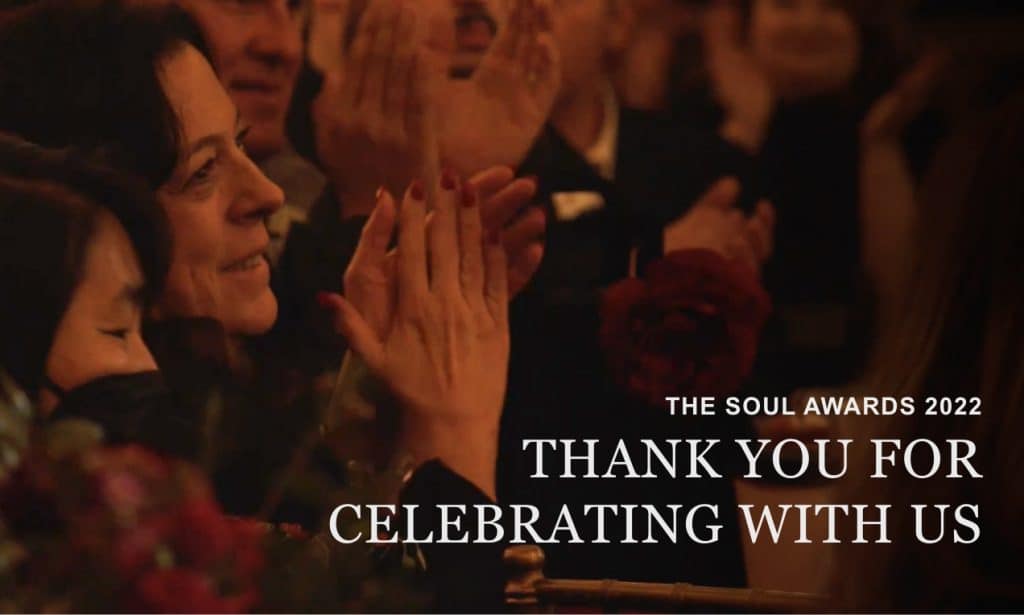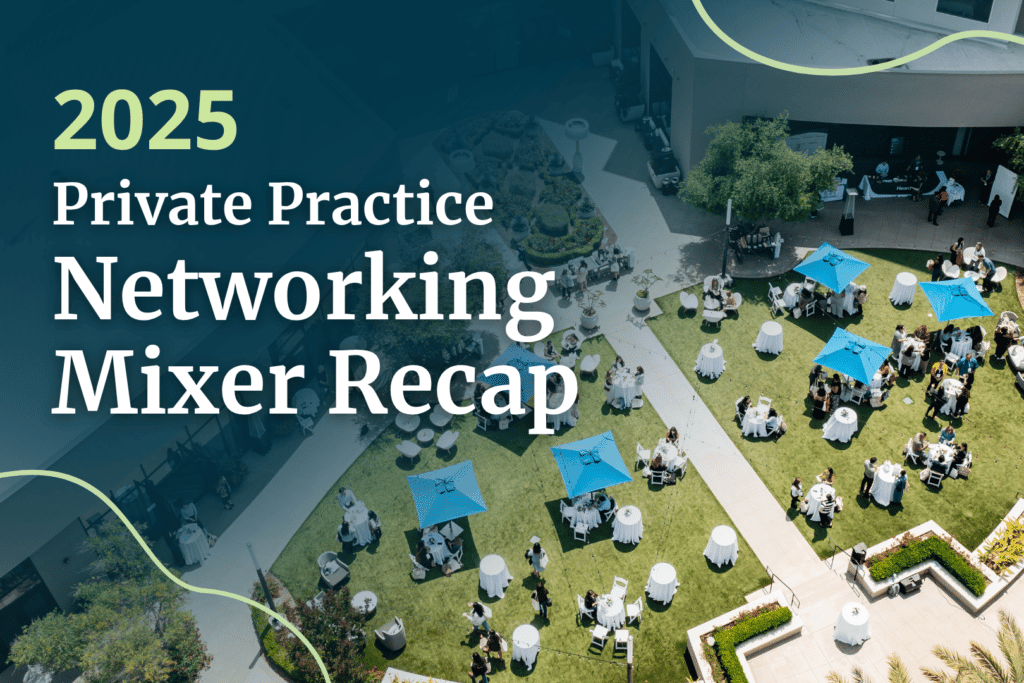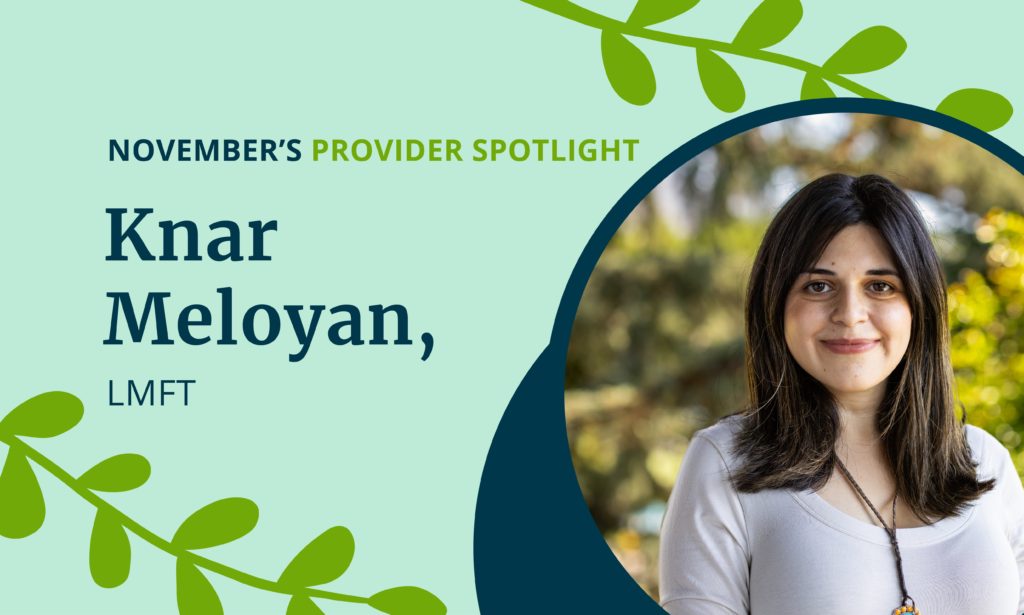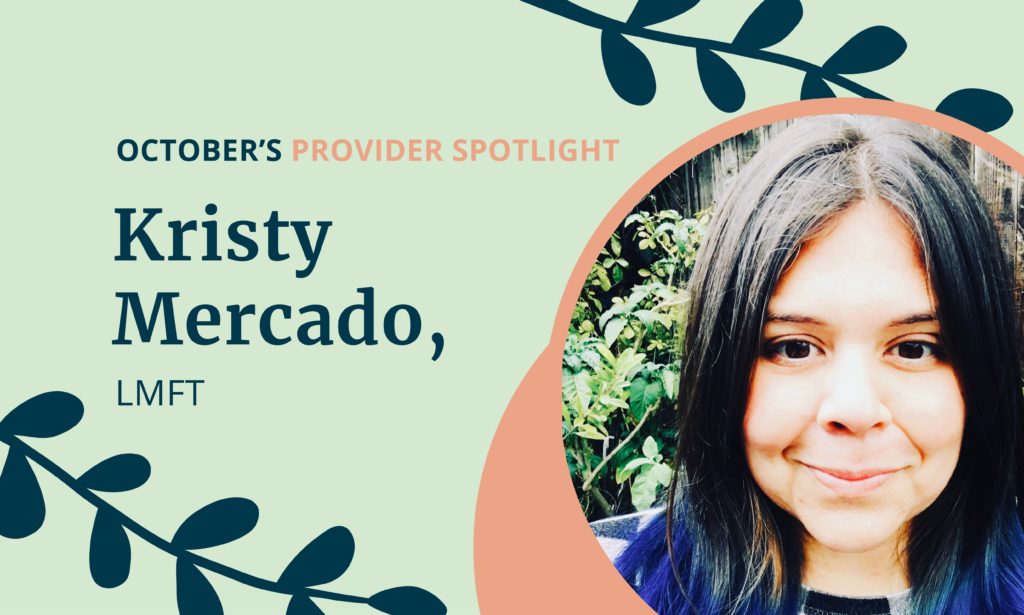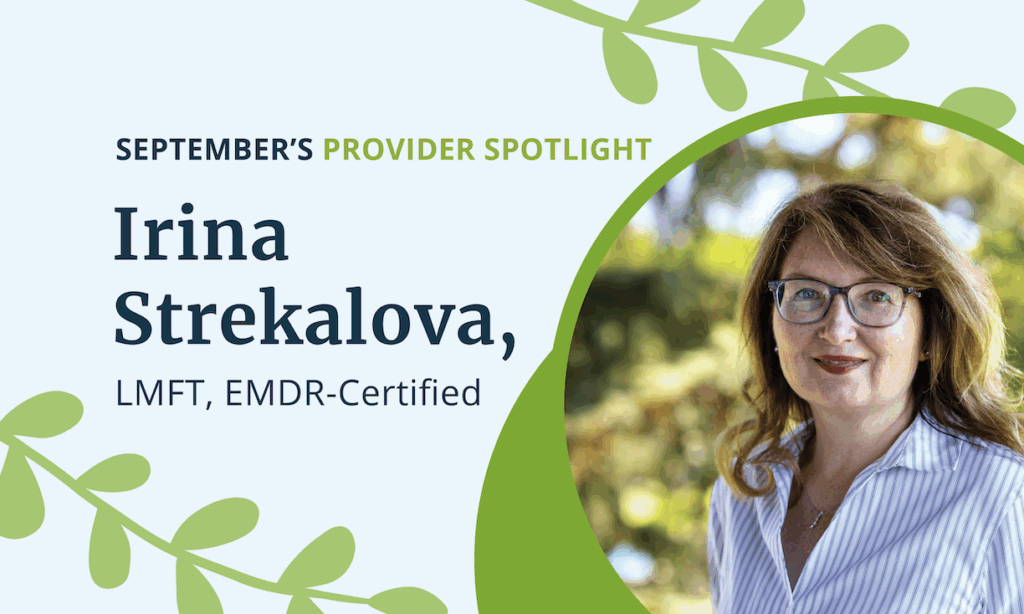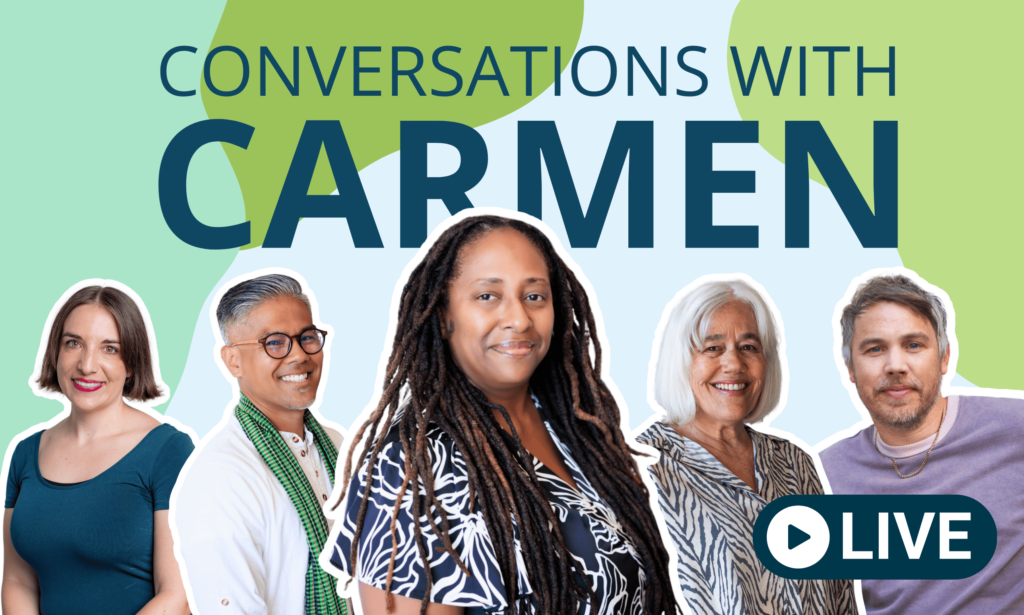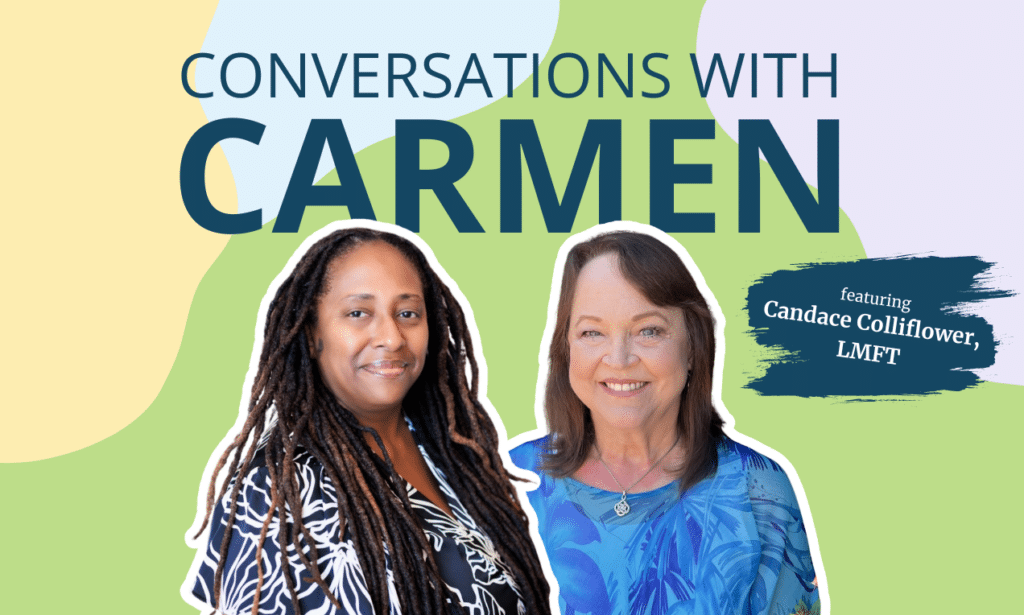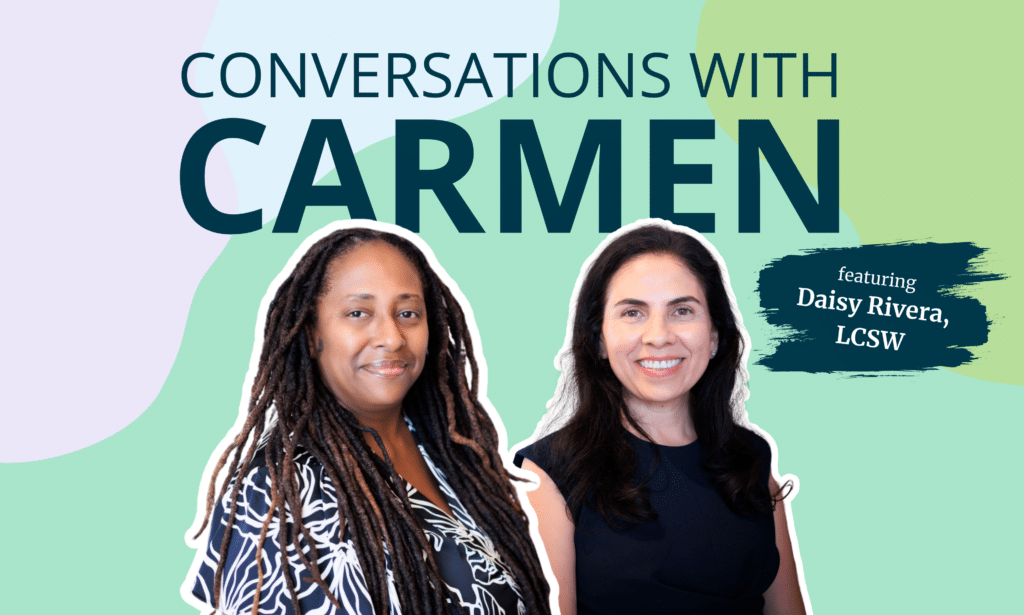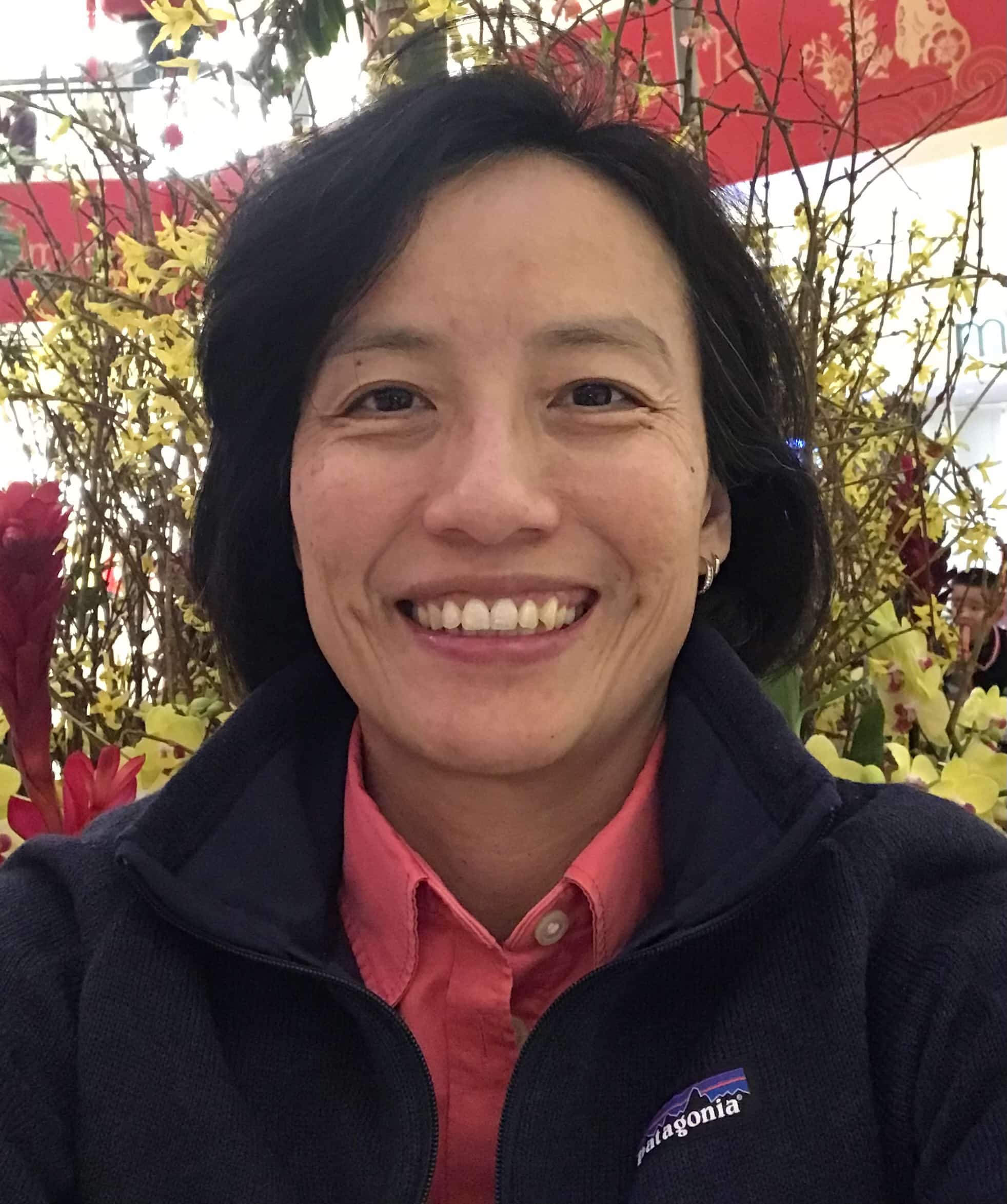
Every month we highlight a provider as our Provider Spotlight. This month’s Provider Spotlight was Casey Huynh, LMFT. Each Provider Spotlight is interviewed by Dr. Carmen Majied for a segment called Conversations with Carmen.
In this segment, Carmen and Casey discuss Casey’s journey through life and how she arrived at Private Practice.
You shared that you were born in Vietnam while the Vietnam War continued to evolve. What was life like for you and your family during that time?
I was 6 yrs old at the time and can only remember flash of living in different places like my maternal grandmother in the country and don’t have memories of my parents being around physically. My family had to ration all our food and save up gold bars to pay for each person boat ticket to leave Vietnam.
You also shared that your mother escaped from Vietnam when you were 6 years old (during the Communist era). What impact did your mother’s departure have on you? How did your life change during that time?
We escaped together but was separated before we reached the boat, I was very much alone for 1 year during my refugee experiences. My life completely change b/c I was made to believe many negative cognitions about myself. The experiences brought out my resiliency and independent but struggle with asking for help. So as an adult I am learning to feel safe to ask for help now.
You disclosed some additional intriguing aspects of your childhood (such as living with a young aunt who was later kidnapped by Thai pirates and living in four refugee camps before settling in the U.S. at the age of 7).
Are you willing to elaborate on those experiences? If so, how would you say the experiences impacted you in terms of resiliency and determination?
We were on a small boat drifting in the Gulf of Thailand and Thai pirates abused our vulnerability and attacked out boat robbing us of everything. Witnessing my aunt being kidnapped and people getting shot gives me a deep tuning of my clinical skills. It allows me to be both comfortable sitting with my own and the pain and suffering of others. At a young age, I was determined to do whatever it took to survive, living minimally, and strive for a comfortable life. I became ambitious to acquire as many properties b/c it was not safe to live in a wooden berets the refuge camps.
You stated that you relocated to Michigan with your father at the age of 7. Subsequently, your mother re-entered your life and moved you and your sister to California with her. What was that transition like for you?
Compared to all the refugee experiences, living in Michigan was heaven, despite the different culture, different types of people I have never encountered before like African Americans and Caucasians, blueberries and raspberries. The most important thing was, I am safe now. I didn’t speak English and didn’t know how to socialize with others but none of that matter b/c I had a house, bed, food, and safety to be alive for 2 years. Sadly, once my mom came, my life went back into darkness b/c she used physical/ emotional abuse to discipline us. Having my sister with me helped us become very close for many years which helped me see the silverlyling in life even during dark times.
You mentioned that while residing in Michigan, you attended an American school for the first time and you were exposed to multiculturalism. What were some of your most notable takeaways? Did you experience assimilation and/or acculturation? If so, in what ways?
The two words I learned in English very quickly were “Yes” and “No”. I loved arts and craft. When I felt unsafe with other children, I would either say “no” or hit them. The school sent a Vietnamese liaison to help with my behavior. Lan Huynh (no relation to me) taught me how to read and rewarded with me arts and crafts time. Eating the cafeteria food wasn’t foreign to me since I was exposed to it through the Red Cross refugee camp food. The sponsors exposed us to Christianity, American pot luck, trading egg rolls with deviled eggs, spending Christmas with church families, and picking blueberries in the summary for money.
Another very fragile season of your life consisted of your personal journey with navigating foster care and struggling with your own mental health. What are you willing to share with us about this time of your life?
At age 13, my mom physically abused me, and my teacher saw my bruises and made the DCFS report. I was a taken by the police to a foster home living with a lady of Mexican decent. Blessed by the court mandate to seek psychotherapy with my parents a the age of 14. I was suffering from physical and emotional which later, I discovered was PTSD and MDD.
What did your undergraduate, graduate school and pre-licensure journeys consist of?
You shared a very inspirational life excerpt with me concerning a previous therapeutic working relationship and how that particular experience informed your journey to APFC/PACS (Asian Pacific Family Center and Pacific Asian Counseling Services). Are you willing to share any aspect of that experience here?
My own neg experience with my first therapist drove me to get my masters and work at the very agency my first therapist work for to counsel Asian clients, especially Vietnamese refugees and their children using Vietnamese language. Counseling Asians suffering with mental health has always been my passion and still is so I can help them reprocess all their life pain and suffering.
You spent a number of years working in Community Mental Health (providing supervisory and direct care services). How did CMH grow you as a clinician and as a person?
DMH taught me how to document, document, and document thoroughly.
You transitioned to Soultenders/private practice in 2020. What was that shift like for you?
The shift was painless in Nov, Soultender management business model took all the anxiety of running my own private practice away and I have a very successful practice now doing what I love.
You shared that you bring EMDR as well as “CBT linked with Buddhism and spirituality” to your practice. Can you share how those therapeutic approaches show up in the work with your clients?
CBT, EMDR and Buddhism shares many commonalities. I enter sessions accepting that clients see me b/c they are experiences pain and suffering which Buddhist believe is to live life. As clients share with me their current troubles, how they feel about it and how they behave (fight, flight, or freeze) and what they are made to believe about themselves in that situation which is CBT. Then I use EMDR to help clients reprocess their trauma with BLS and the power of awareness. The goal is to moving from their negative cognition to what they rather believe about themselves.
How would you say your multicultural background informs your practice? How is your sense/understanding of cultural sensitivity and cultural competency impacted? How do you differentiate between cultural sensitivity and cultural competency?
Being that I am Asian woman, escaped war from another country, grew up with an abusive and neglectful parents and other experience gives me the cultural sensitivity for my clients. I do not consider myself culturally competent or competent about humans. I see myself sensitive to humans pain and suffering, comfortable with guiding them through their trauma journey so they can see what happened to them as a child and how they want to see themselves now with compassion, patience, and kindness.
What clients do you typically work with in your practice?
I specialize in childhood traumas, inner child work, deep negative cognition across many ethnic groups from ages 10 to 65 years old.
How does Soultenders support you professionally?
Soultenders took away all the stress, doubt, and challenges in private practice and running my own business painless. They removed the pain of paneling with insurance/billing so I can focus on the clinical components with my clients. Soultenders family/ community provided me with professional connection and still feels personal.
We talked about Gerald Corey- Theory and Practice of Counseling and Psychotherapy- (including his rich clinical and educational history).
How has he influenced or informed your clinical work over time?
Are there additional trainings, certifications and/or specializations that you would like to incorporate into your practice?
I am EMDR certified since 2022 and love the practice.
What do you enjoy doing outside of work? What does quality time spent with your family look like?
Is there anything else that you would like us to know about you, Casey?
I love to swim.

